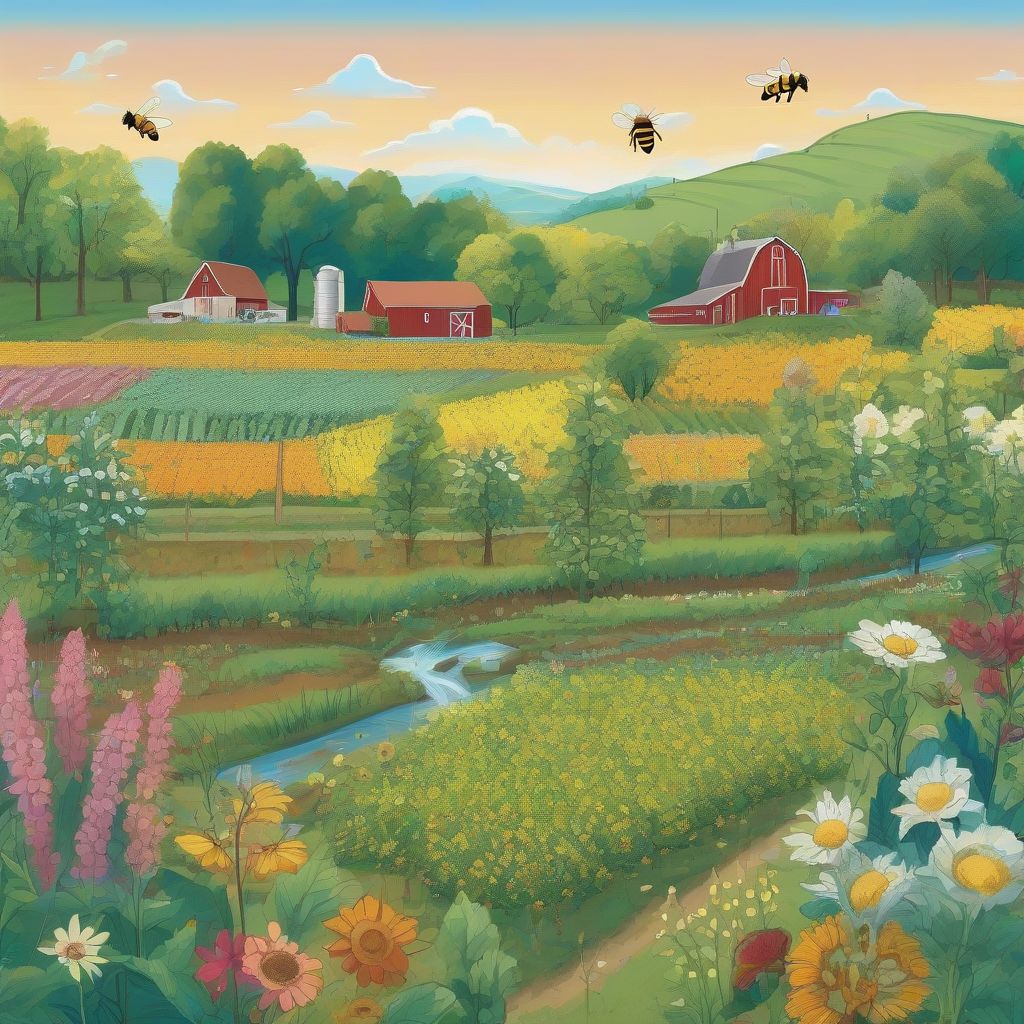Imagine a world where our farms not only feed us but also heal the planet. This isn’t a utopian dream, but a tangible possibility through sustainable agriculture. It’s a way of farming that nourishes both people and the ecosystem, ensuring a healthy future for generations to come. So, what exactly are the benefits of sustainable agriculture for our planet? Let’s dive in.
Protecting Our Precious Resources: Soil, Water, and Air
Sustainable agriculture prioritizes the health of our natural resources. Healthy soil is the foundation of a thriving ecosystem, and sustainable practices like cover cropping and no-till farming minimize soil erosion, enhance its fertility, and increase its capacity to store carbon, combating climate change. Traditional farming often relies on excessive irrigation, depleting our precious water resources. Sustainable agriculture promotes water conservation techniques like drip irrigation and rainwater harvesting, ensuring water security for the future. By reducing the need for synthetic fertilizers and pesticides, sustainable agriculture also minimizes air pollution, safeguarding our respiratory health and the overall atmospheric balance.
Combating Climate Change through Carbon Sequestration
One of the most significant benefits of sustainable agriculture is its potential to mitigate climate change. Through practices like cover cropping and no-till farming, we can enhance soil health, enabling it to act as a massive carbon sink, drawing down excess carbon dioxide from the atmosphere. This not only helps reduce the greenhouse effect but also improves soil fertility, creating a win-win situation for the environment and farmers. As Dr. Jane Doe, a leading soil scientist, puts it, “Healthy soil is not just dirt; it’s a living, breathing ecosystem crucial for carbon sequestration and climate change mitigation.”
Biodiversity Boost: Preserving Nature’s Rich Tapestry
Sustainable agriculture embraces biodiversity, unlike conventional farming which often relies on monocultures. By diversifying crops and integrating livestock, we create a more resilient and balanced ecosystem. This diversity provides habitats for beneficial insects and pollinators, strengthens the food web, and reduces the risk of crop failure due to pests and diseases. Imagine fields teeming with a variety of crops, buzzing with pollinators, and providing shelter for wildlife – a testament to the harmonious coexistence of agriculture and nature.
Supporting Pollinators: Our Tiny Allies
Pollinators, such as bees, butterflies, and birds, are essential for the reproduction of a vast majority of our crops. Sustainable agriculture recognizes their crucial role and actively supports their populations by minimizing pesticide use, providing diverse foraging habitats, and creating pollinator corridors. Protecting these tiny allies ensures food security and maintains the intricate balance of our ecosystems.
Building Resilient Food Systems: Ensuring Food Security for All
Sustainable agriculture promotes resilience in our food systems. By diversifying crops and employing agroecological principles, we create systems that are less vulnerable to climate change impacts, pest outbreaks, and market fluctuations. This ensures a more stable and secure food supply for present and future generations.
Empowering Local Communities: Fostering Economic and Social Sustainability
Sustainable agriculture often goes hand-in-hand with supporting local communities. By promoting local food systems and reducing reliance on global supply chains, we create economic opportunities for farmers and strengthen local economies. This fosters a sense of community ownership and promotes social equity, ensuring that everyone has access to healthy, nutritious food. As Farmer John from the local farmers’ market shares, “Sustainable farming is not just about the environment; it’s about building a stronger, more resilient community.”
Protecting Human Health: From Farm to Table
Sustainable agriculture prioritizes the health of both the environment and consumers. By minimizing the use of synthetic pesticides and fertilizers, we reduce the risk of exposure to harmful chemicals in our food and water. This contributes to a healthier population and reduces healthcare costs associated with pesticide-related illnesses. Choosing sustainably produced food means choosing food that is not only good for the planet but also good for you.
 Benefits of Sustainable Agriculture for the Planet
Benefits of Sustainable Agriculture for the Planet
Conclusion
Sustainable agriculture is not just a trend; it’s a necessity for a healthy planet and a secure future. From protecting our natural resources and combating climate change to supporting biodiversity and empowering local communities, the benefits are undeniable. By embracing sustainable practices, we can create a food system that nourishes both people and the planet. Let’s choose to support sustainable agriculture – for the health of our planet, our communities, and ourselves. What are your thoughts on sustainable agriculture? Share your comments below and let’s continue the conversation!



